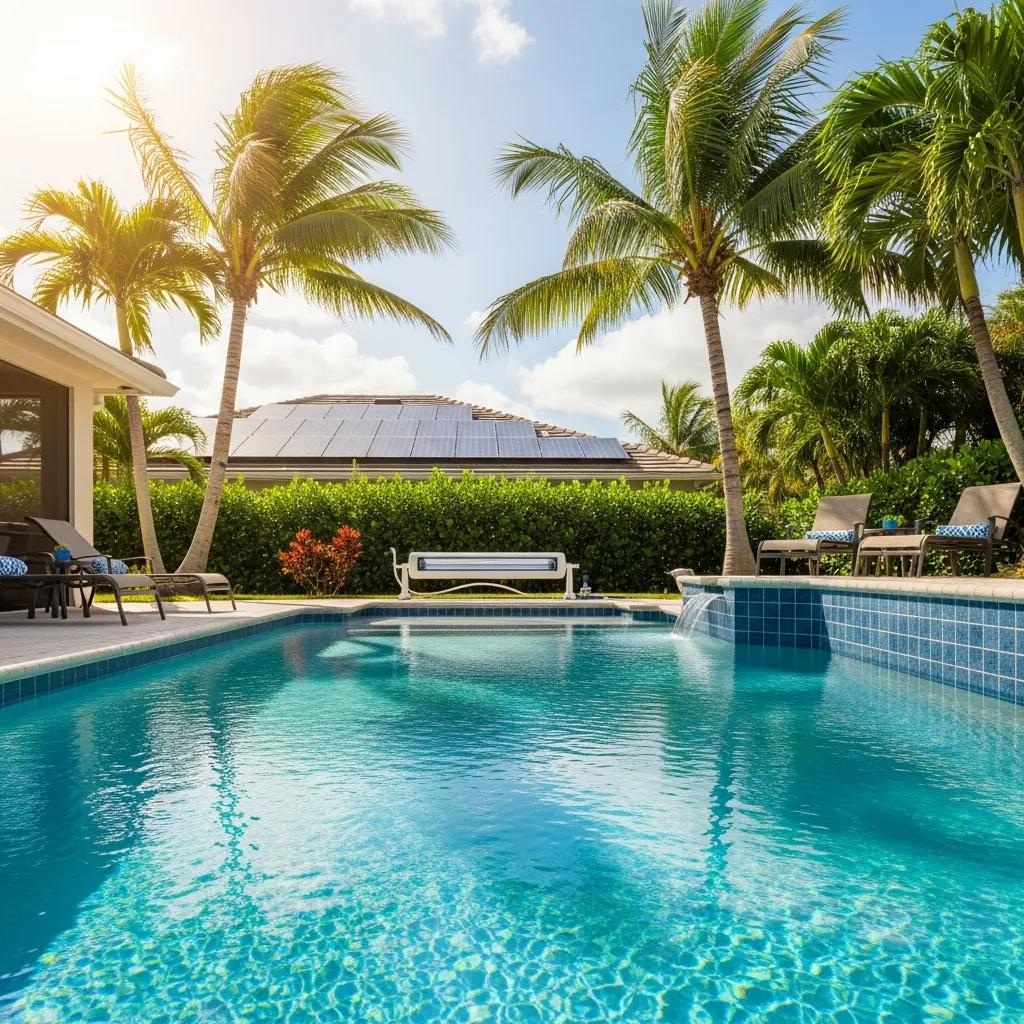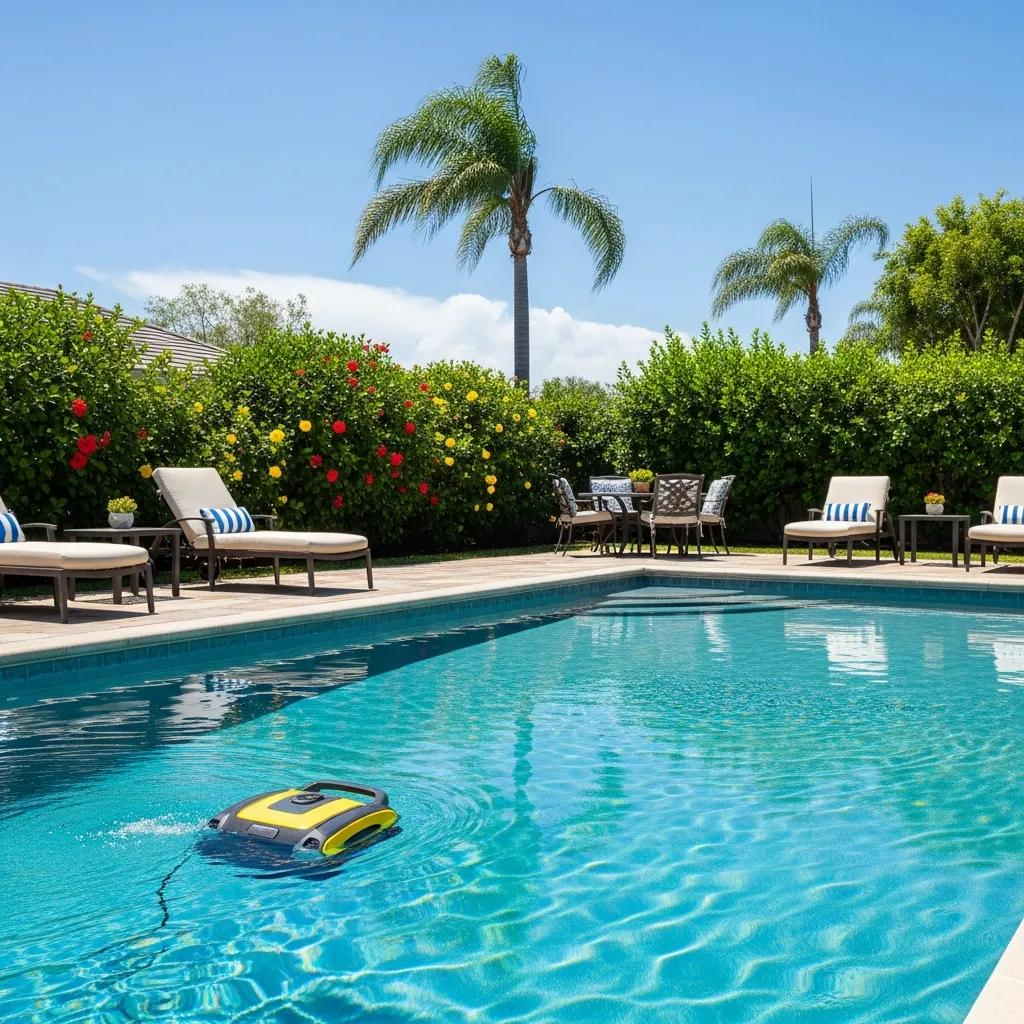
An automated pool system should work in the background so you can relax and enjoy your swim. Whether you're managing the pump schedule, lights, heating, or cleaning cycles, automation keeps everything running on time without you needing to lift a finger. In Cape Coral, pool owners depend on these systems to simplify maintenance and improve everyday convenience, especially during warmer months.
When the system starts malfunctioning, even in minor ways, it can disrupt water quality, comfort, energy use, and appearance. You might notice frequent temperature changes, a buildup of debris, or issues turning on lights at night. These are more than just annoyances. They can indicate problems within the control panel, wiring, sensors, or other connected parts. Knowing what to watch for can help you fix problems sooner and avoid higher repair costs later.
Common Signs Of A Malfunctioning Pool Automation System
Pool automation systems are meant to make pool management easier. When that convenience disappears, the signs are usually obvious. Many of these issues force you to manage systems manually instead of relying on scheduled routines.
You may be experiencing a system malfunction if:
- The pool water feels too cold or too hot, even though you’ve set specific temperature preferences. This might mean the system is failing to control heating functions properly.
- The scheduled pump cycles skip or run longer than planned. If scheduled cleanings are missed, you may notice visible dirt or debris in the water.
- Pool lighting does not respond correctly. Lights may not turn on, may flicker, or change brightness for no reason.
- Water features like fountains or bubblers operate outside of their normal schedule or not at all, indicating timing or power issues.
- The control panel or mobile app lags, freezes, or does not respond to commands at all.
A homeowner in Cape Coral recently dealt with a spa heater that refused to turn on, even after a reset. The entire schedule had been wiped and new settings would not save. This type of error is often caused by internal control failure and requires proper diagnosis.
Ignoring these kinds of warning signs can cause more damage over time. One failed system can impact other connected operations, meaning future repairs might involve more time, money, and labor.
How To Check For Automation System Trouble
Before a minor glitch turns into a full system failure, there are a few simple checks you can do to understand what might be wrong. While you may not be able to fix every issue, doing a quick inspection can provide clear clues that help our technicians during a service appointment.
Check these areas:
1. Control Panel Alerts – Look for blinking lights, strange codes, or warning messages. Any sign of error on the screen is worth noting.
2. Look Over Components – Perform a visual inspection of the automated equipment. Check for loose wiring, broken parts, or anything that appears physically damaged.
3. Test Network and Power – Make sure your smart system is connected to Wi-Fi or Bluetooth and has consistent power access. In some cases, the issue is limited to connection downtime.
4. Software Updates – Missing updates can cause unexpected behavior. Check the system interface or app for any pending firmware or software patches.
5. Function Test – Try operating different features manually. Check how quickly the system responds or if it responds at all. Delays or failures give useful insight into communication problems.
Even if you are unsure what an alert means, documenting it or taking a picture can assist our technicians. Sharing this information ahead of your service appointment helps speed up the repair process.
Solutions for Common Pool Automation Issues
When something doesn’t feel right, tackling the basics first is a smart move. Many issues with pool automation in Cape Coral come from parts wearing out, skipped maintenance, or outdated system settings. A simple fix may restore normal operations, but more advanced repairs call for professional service.
Here are solutions typically used for common issues:
- Reset and Recalibrate Controls
A hard reset can often remove small bugs. If your scheduled settings are not working or incoming commands are not being followed, rebooting the system and re-entering schedules might be enough to restore function.
- Clean Sensors and Components
Dust, dirt, and moisture can affect the accuracy of sensors and responsiveness of control units. Use a clean, dry cloth to wipe off external components when needed. More involved cleanings should be handled by our professionals.
- Check Wiring and Connections
Loose cables, corroded ends, or deteriorated wires can create signal loss between parts such as the pump, heater, and light systems. If connections appear worn, corroded, or are sitting in damp areas, they likely need swapping by a qualified technician.
- Replace Non-Functional Components
Certain parts like relays, circuit boards, or timers may fail and continue to disrupt service even after resets. When one element repeatedly fails, it’s time to replace the part. Experienced technicians can identify the faulty unit and install the correct replacement.
- Update Firmware or Software
An outdated system can experience connectivity issues, dropped settings, or delays in performance. Running updates through the system interface can strengthen connections and fix bugs affecting reliability.
One Cape Coral pool owner was having trouble with a smart pump that stopped responding, even though there was no issue with the signal range. Once the control hub’s antenna was realigned and a small firmware patch installed, the equipment worked perfectly again.
When to Contact Our Professionals for Pool Automation Repair
While some problems are manageable with basic checks, certain malfunctions require expert help. Once you’ve ruled out obvious physical damage or settings errors, it may be time to call our professionals.
You should contact our team if:
- The central control unit loses power or responses intermittently
- There is corrosion, burning smells, or any water intrusion in the system’s electrical areas
- Your equipment won’t hold new schedule settings or keeps reverting to defaults
- Heating or other automated features refuse to function within regular settings
- Devices like lights, pumps, or fountains activate randomly or stay stuck in one mode
These issues indicate internal problems that likely involve harder-to-access wiring, damaged circuits, or system-wide programming errors. Pool automation relies on multiple parts communicating together correctly. If that coordination breaks down, it impacts usability and function.
Delaying service could make things worse. Routine system problems can lead to poor water balance, unhygienic conditions, or overuse of equipment that puts extra stress on each component. This can also increase wear and shorten the life of heaters, pumps, and lights.
Our technicians are trained to handle full automation systems. They use proper tools to test both the software and electrical parts, identify issues quickly, and restore functionality so you can use your pool again comfortably.
Keep Your Pool Automation Running Smoothly
When your pool runs as it should, that means fewer interruptions, less cleaning by hand, and a more enjoyable experience overall. Most pool owners in Cape Coral use automatic pumps, heating, and lighting to cut down on daily maintenance. These systems do the job well, but only when they are in good condition.
Consistent system care starts with watching for warning signs. If a light flickers, a pump slows, or you suddenly lose control of commands, even for a day, it may point to a deeper problem that could get worse if ignored. The more proactive you are with maintenance, the better your entire pool area will perform.
Routine service checks can help find failures you may not even know exist. Identifying trouble during a seasonal assessment can mean an easy fix instead of a complex repair later. Consistent maintenance also protects major components from overworking, keeping energy usage aligned with your original settings.
For residents in Cape Coral, a pool is part of daily relaxation and warm-weather comfort. Maintaining your automation system means enjoying more swim days and fewer surprises from unexpected breakdowns. Whether you need basic calibration, parts replaced, or software help, planning ahead reduces unexpected system failure and keeps your pool running with ease.
If recurring glitches or unresponsive features are affecting your pool’s performance, Seemore Services, LLC provides reliable solutions tailored to restore efficiency. Our team offers expert pool automation repair in Cape Coral to diagnose and correct issues before they escalate. For a quick estimate or to book a service visit, please contact us today.
Customer Testimonials


Electric vs. Solar Pool Heaters: A Comprehensive Comparison
.png)
Pool Winterization Guide for Southwest Florida













